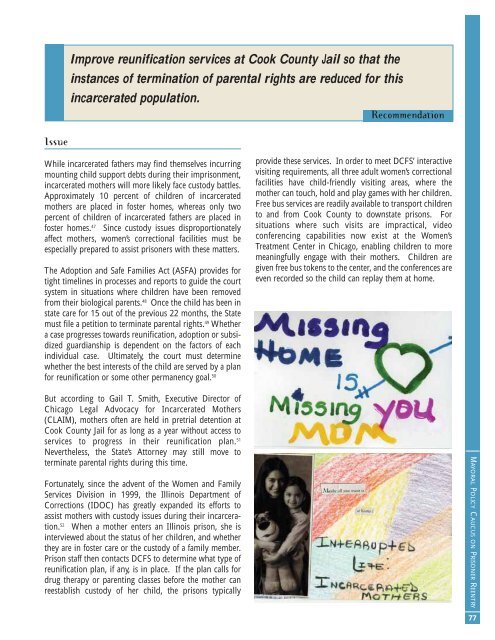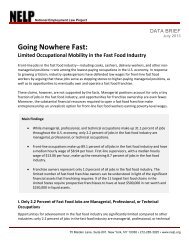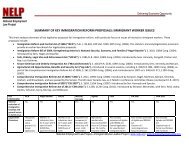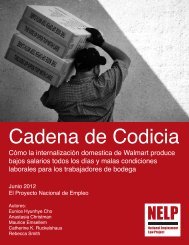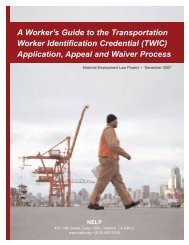Rebuilding Lives. Strengthening Communities.
Rebuilding Lives. Strengthening Communities.
Rebuilding Lives. Strengthening Communities.
Create successful ePaper yourself
Turn your PDF publications into a flip-book with our unique Google optimized e-Paper software.
Improve reunification services at Cook County Jail so that the<br />
instances of termination of parental rights are reduced for this<br />
incarcerated population.<br />
Recommendation<br />
Issue<br />
While incarcerated fathers may find themselves incurring<br />
mounting child support debts during their imprisonment,<br />
incarcerated mothers will more likely face custody battles.<br />
Approximately 10 percent of children of incarcerated<br />
mothers are placed in foster homes, whereas only two<br />
percent of children of incarcerated fathers are placed in<br />
foster homes. 47 Since custody issues disproportionately<br />
affect mothers, women’s correctional facilities must be<br />
especially prepared to assist prisoners with these matters.<br />
The Adoption and Safe Families Act (ASFA) provides for<br />
tight timelines in processes and reports to guide the court<br />
system in situations where children have been removed<br />
from their biological parents. 48 Once the child has been in<br />
state care for 15 out of the previous 22 months, the State<br />
must file a petition to terminate parental rights. 49 Whether<br />
a case progresses towards reunification, adoption or subsidized<br />
guardianship is dependent on the factors of each<br />
individual case. Ultimately, the court must determine<br />
whether the best interests of the child are served by a plan<br />
for reunification or some other permanency goal. 50<br />
provide these services. In order to meet DCFS’ interactive<br />
visiting requirements, all three adult women’s correctional<br />
facilities have child-friendly visiting areas, where the<br />
mother can touch, hold and play games with her children.<br />
Free bus services are readily available to transport children<br />
to and from Cook County to downstate prisons. For<br />
situations where such visits are impractical, video<br />
conferencing capabilities now exist at the Women’s<br />
Treatment Center in Chicago, enabling children to more<br />
meaningfully engage with their mothers. Children are<br />
given free bus tokens to the center, and the conferences are<br />
even recorded so the child can replay them at home.<br />
But according to Gail T. Smith, Executive Director of<br />
Chicago Legal Advocacy for Incarcerated Mothers<br />
(CLAIM), mothers often are held in pretrial detention at<br />
Cook County Jail for as long as a year without access to<br />
services to progress in their reunification plan. 51<br />
Nevertheless, the State’s Attorney may still move to<br />
terminate parental rights during this time.<br />
Fortunately, since the advent of the Women and Family<br />
Services Division in 1999, the Illinois Department of<br />
Corrections (IDOC) has greatly expanded its efforts to<br />
assist mothers with custody issues during their incarceration.<br />
52 When a mother enters an Illinois prison, she is<br />
interviewed about the status of her children, and whether<br />
they are in foster care or the custody of a family member.<br />
Prison staff then contacts DCFS to determine what type of<br />
reunification plan, if any, is in place. If the plan calls for<br />
drug therapy or parenting classes before the mother can<br />
reestablish custody of her child, the prisons typically<br />
MAYORAL POLICY CAUCUS ON PRISONER REENTRY<br />
77


